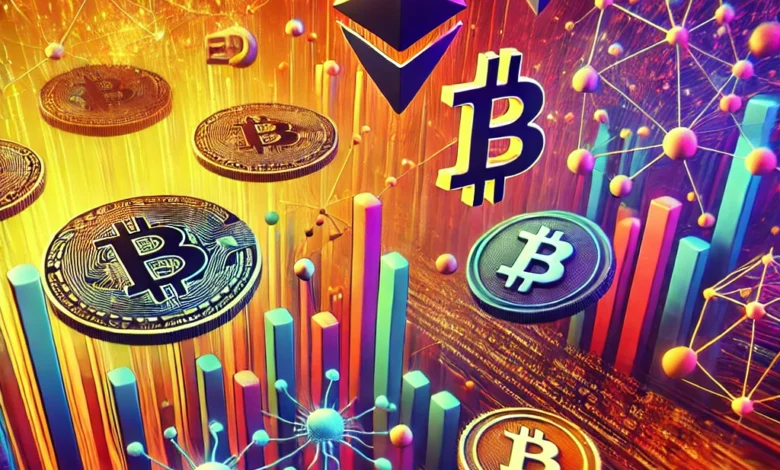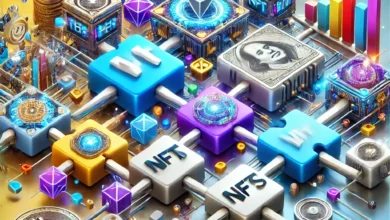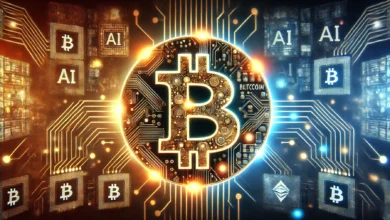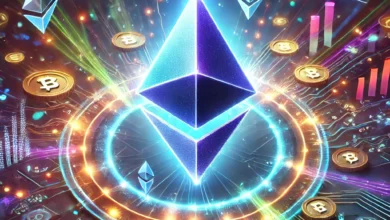Decentralized Exchanges and DeFi: Unlocking Financial Freedom

In recent years, the cryptocurrency landscape has undergone profound changes, driven by innovative technologies and evolving market dynamics. Among these developments, decentralized exchanges (DEXs) and decentralized finance (DeFi) platforms have emerged as pivotal elements, reshaping how users interact with digital assets. This article delves into the burgeoning rise of DEXs and DeFi, exploring their impact, benefits, challenges, and the future trajectory of these technologies.
The Emergence of Decentralized Exchanges
What are Decentralized Exchanges?
Decentralized exchanges are platforms that facilitate peer-to-peer trading of cryptocurrencies without the need for an intermediary or central authority. Unlike traditional centralized exchanges (CEXs), which require users to deposit their assets into a central wallet controlled by the exchange, DEXs allow users to retain custody of their funds throughout the trading process. This is achieved through smart contracts—self-executing contracts with the terms of the agreement directly written into code.
Key Players in the DEX Space
Several DEXs have gained prominence, with platforms like Uniswap, SushiSwap, and PancakeSwap leading the charge. Uniswap, one of the pioneers in the DEX space, operates on the Ethereum blockchain and uses an automated market maker (AMM) model to facilitate trades. SushiSwap, a fork of Uniswap, offers additional features like staking and yield farming, while PancakeSwap operates on the Binance Smart Chain (BSC), providing faster transactions and lower fees.
The Advantages of Decentralized Exchanges
Enhanced Security
One of the primary advantages of DEXs is enhanced security. Since users retain control of their private keys and funds, the risk of hacks and breaches is significantly reduced compared to centralized exchanges. This decentralized nature also mitigates the risk of exchange shutdowns or regulatory interventions that can affect user funds.
Greater Privacy
DEXs offer greater privacy by eliminating the need for extensive Know Your Customer (KYC) and Anti-Money Laundering (AML) procedures commonly enforced by centralized exchanges. This appeals to users who prioritize privacy and anonymity in their transactions.
Accessibility and Inclusivity
Decentralized exchanges are accessible to anyone with an internet connection, removing barriers to entry for users worldwide. This inclusivity fosters financial empowerment by providing access to financial services for unbanked and underbanked populations.
The Rise of Decentralized Finance (DeFi)
What is Decentralized Finance?
Decentralized finance, or DeFi, refers to a broad ecosystem of financial applications built on blockchain technology, aimed at recreating traditional financial systems in a decentralized manner. DeFi encompasses a wide range of services, including lending and borrowing, asset management, insurance, and derivatives trading.
Key Components of DeFi
- Lending and Borrowing Platforms: Platforms like Aave and Compound enable users to lend their assets to earn interest or borrow assets by collateralizing their holdings. These platforms operate through smart contracts, ensuring transparency and security.
- Decentralized Exchanges (DEXs): As previously discussed, DEXs play a crucial role in the DeFi ecosystem by facilitating the trading of digital assets without intermediaries.
- Stablecoins: Stablecoins like USDC, DAI, and Tether (USDT) are pegged to fiat currencies, providing a stable medium of exchange within the volatile cryptocurrency market. They are widely used in DeFi applications to mitigate price fluctuations.
- Yield Farming and Liquidity Mining: Yield farming involves providing liquidity to DeFi protocols in exchange for rewards. Liquidity mining further incentivizes users by distributing native tokens of the platform to liquidity providers.
- Insurance Protocols: DeFi insurance platforms like Nexus Mutual offer coverage against smart contract failures, hacks, and other risks associated with DeFi activities.
Read more of NFTs 2024 here.
Benefits of Decentralized Finance
Financial Inclusion
DeFi democratizes access to financial services, enabling anyone with a smartphone and internet connection to participate in the global financial system. This is particularly impactful in regions with limited access to traditional banking services.
Transparency and Trust
DeFi platforms operate on public blockchains, ensuring transparency and accountability. Smart contracts execute transactions based on predefined rules, reducing the need for trust in intermediaries.
Innovation and Interoperability
The open-source nature of DeFi protocols fosters innovation and collaboration. Developers can build on existing protocols, creating a modular ecosystem where different applications can seamlessly interact with each other.
Challenges and Risks
Scalability Issues
One of the significant challenges facing DEXs and DeFi platforms is scalability. High transaction fees and slow processing times on popular blockchains like Ethereum can hinder user experience and adoption. Solutions such as Ethereum 2.0 and Layer 2 scaling technologies aim to address these issues.
Regulatory Uncertainty
The regulatory landscape for DEXs and DeFi remains uncertain. While decentralization offers resilience against regulatory actions, increasing scrutiny from governments worldwide poses potential risks. Regulatory clarity is essential for the sustainable growth of the DeFi ecosystem.
Security Concerns
Despite the security advantages of decentralization, DeFi platforms are not immune to risks. Smart contract vulnerabilities, hacking incidents, and exit scams have resulted in significant losses for users. Continuous auditing and development of secure coding practices are crucial to mitigating these risks.
The Future of DEXs and DeFi
Mainstream Adoption
The adoption of DEXs and DeFi is poised to grow as more users recognize the benefits of decentralization. Enhanced user interfaces, educational initiatives, and integration with traditional financial systems will drive mainstream adoption.
Interoperability and Cross-Chain Solutions
Interoperability between different blockchains and DeFi protocols is a key focus for the future. Cross-chain solutions and bridges will enable seamless asset transfers and interactions across various blockchain networks, expanding the reach and functionality of DeFi.
Institutional Involvement
Institutional interest in DeFi is increasing, with major financial institutions exploring decentralized solutions. The entry of institutional players will bring liquidity, credibility, and innovation to the DeFi space, accelerating its growth and maturation.
Read more of NFTs 2024 here.
- The rise of decentralized exchanges and decentralized finance represents a paradigm shift in the financial landscape. By providing enhanced security, greater privacy, and unprecedented accessibility, DEXs and DeFi platforms are redefining how individuals and institutions interact with digital assets. While challenges such as scalability, regulatory uncertainty, and security concerns persist, the potential for innovation and financial inclusion is immense. As the ecosystem continues to evolve, decentralized exchanges and DeFi are set to play a pivotal role in shaping the future of finance.




